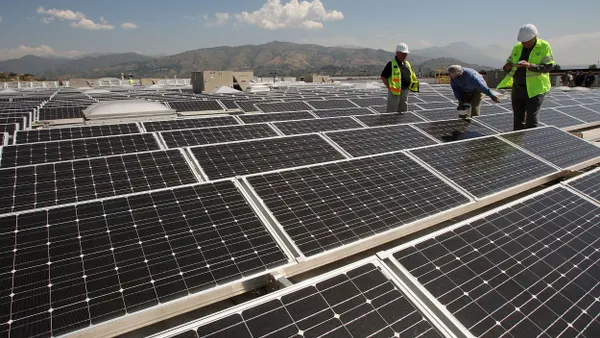Dive Brief:
- A draft report from the Michigan Public Service Commission proposes that DTE Energy Co. and Consumers Energy Co., the state’s dominant investor-owned utilities, develop more customer-owned and community-owned distributed solar as the regulators consider how to achieve Gov. Rick Snyder’s proposed 20% renewables by 2025 mandate, now that the state is on track to reach its current 10% by 2015 mandate.
- The PSC report proposes that Michigan expand its 28 megawatt customer owned solar programs by at least 50 megawatts by the end of 2015.
- In addition to three existing options to support community solar, the report proposes three new options that would support more distributed solar, one which is based on net metering, another which is based on a value of solar calculation, and a third in which solar is supported by a hybrid of the two options.
Dive Insight:
The report criticized the utilities’ current inefficient, lottery-based solar programs because they cause "boom and bust" cycles for installers and force customers to drop out.
The first financing option would use the 30% federal investment tax credit and an estimated $0.09 per kilowatt net metering rate funded out of the now $15 million fund built up by renewable-energy surcharges over the last six years.
The second option would be based on a not-yet-determined value of solar methodology which would be used to derive a per kilowatt-hour rate that would be added to a renewable energy credit value, with the customer’s electricity rate subtracted from the total to arrive at the return on the system’s output.
The not-yet-defined hybrid option would likely provide for a net metering plan while the customer could be credited at a value of solar rate for further electricity sent to the grid.
The proposal limits the customer-owned solar options to systems of 20 kilowatts or less of nameplate capacity. The plan for customer-owned solar would be added to Michigan utility programs supporting 20 kilowatt to 500 kilowatt community solar programs proposed by the PSC in 2013.
The three options for shared-cost, community-owned solar would be (1) utility funded, (2) customer/owner-funded, and (3) crowd funded.














